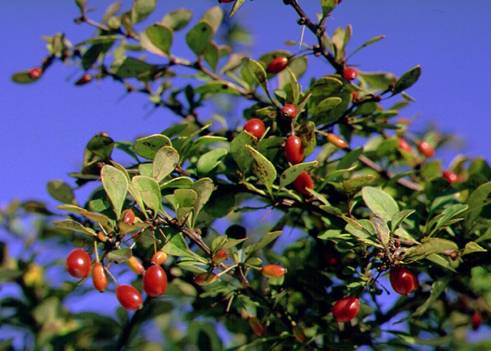
Union County, NJ – Japanese barberry is a common shrub that could be playing a role in the spread of Lyme disease, according to the U.S. Department of Agriculture. By planting native shrubs instead of Japanese barberry, property owners can help reduce the risk — and create a more healthful habitat for butterflies and other pollinators, too.
“Union County residents can take action to check the spread of Lyme disease by choosing ornamental plants that help create an environment for beneficial species,” said Freeholder Chairman Bruce H. Bergen. “For example, Virginia sweetspire attracts butterflies and is recommended for its vivid fall colors.”
Japanese barberry is a popular ornamental shrub. It is also an invasive species that has gained a foothold in public parks.
According to the Department of Agriculture, the plant creates a humid micro climate that attracts deer ticks and white-footed deer mice, both of which are carriers of Lyme disease.
Bergen advised County residents who are planning landscape or garden projects to view the free Plant This, Not That guide. Plant This, Not That was created by a local Girl Scout with assistance from the Union County Department of Parks and Recreation, to show how to use colorful native plants instead of invasive species.
“Residents can also volunteer with our Union County Adopt-a-Park program, which will be focusing on the Japanese barberry in the coming months,” said Freeholder Vice Chairman Sergio Granados, who chairs the Parks and Recreation Advisory Board.
Union County Adopt-a-Park is a partner in the New Jersey Invasive Species Strike Team, a statewide effort that includes management of Japanese barberry.
For people looking to remove the Japanese barberry shrub from their property, the National Park Service suggests using thick gloves to pull up young plants by hand. Tools and lawnmowers can be used to remove older plants. Systemic herbicides are also effective.
To prevent tick bites and Lyme disease, make sure to wear long sleeves, long pants, and thick socks when spending time outdoors.
Any individual or group can volunteer with Union County Adopt-a-Park. For details n contact the Union County Department of Parks and Recreation at 908-789-3683 or visit vucnj.org/parks-recreation.
Photo credit: via Columbia University.
# #
For all Union County programs and services visit ucnj.org, call the Public Info Line, 877-424-1234, email info@ucnj.org or use the online Contact Form.
Connect with Union County on social media.
